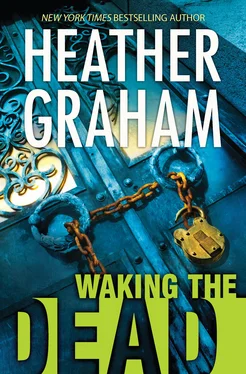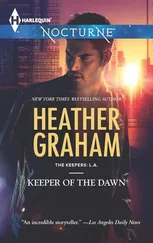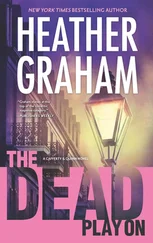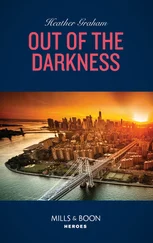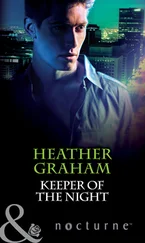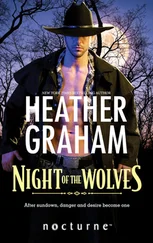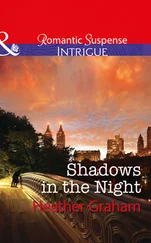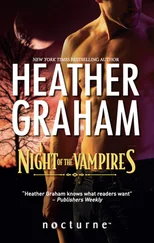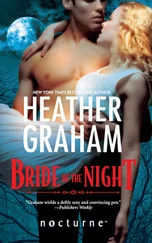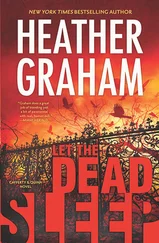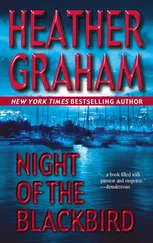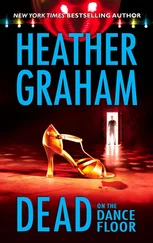And, most important, he had lured George, Lord Byron, here—along with Percy Bysshe Shelley and his young lover, Mary Godwin. The party also included Mary’s stepsister, Claire, who had surely come in hopes of regaining her place as Lord Byron’s mistress, and the striking young John Polidori, a writer of sorts himself, but hired by Lord Byron as his personal physician.
What made the castle an exceptional choice despite its discomforts was the impression it allowed him to give others—that he was a moody artist making his name in the avant-garde world, where the dark side of human nature, religion and science were intriguing the finest minds of his day.
Thanks to family money, he could afford this place. Nothing better, perhaps—but the castle sufficed.
“Henry!” Claire was the first to greet him, running to where he stood at the gates, throwing herself in his arms. She was soaked and didn’t care in the least that she dampened him, as well.
He gave her the mandatory hug and stepped back. “Welcome!” he called cheerfully as they ran up. “Welcome, welcome, get under the portcullis, my friends, and we’ll make a dash for the house! I’m so glad you’ve arrived!”
“Did you doubt us, dear fellow?” George asked, giving him a hug, as well. The hug was enthusiastic; he wasn’t sure if George was testing him. Lord Byron enjoyed outrageous behavior, although he toned it down in London, lest his words not receive the respect they deserved when he voiced his opinions in the House of Lords. He was often condemned for his poetry, ostracized by society—and yet his political rhetoric sometimes held sway.
“We’re delighted to see you, Henry,” Mary said. She had such a sweet smile. While she’d chosen the bohemian lifestyle—running off to the Continent with Shelley when he was legally married to another woman—there was still a sense of charm and old-fashioned morality about Mary. Henry was in love with her himself, he realized. “Any outing is exciting these days,” she went on. “The weather is so very dreary.”
“Yes, man, and we’re quite frozen solid,” Percy said, slipping his arms around Mary and grinning at Henry. “You’ve a fire, I believe.”
“A big fire, and a great deal of delicious, mulled brandy,” Henry promised. Messine had already sent two other servants down to the lake. They’d gather his guests’ luggage from the boat.
Henry greeted Polidari, who was bringing up the rear, carrying his own bag.
“It will be good that I am a physician, since we’ll all be catching our deaths of cold!” Polidari told them.
They raced across what had once been the inner courtyard and was now the only courtyard that led to the giant double doors and the hall. Raoul Messine was there, and he held the doors open for them, handing warmed towels to the sodden guests as they made their way in. Henry followed last, closing the great doors as he entered. Mary was already before the fire, wrapped in the towel, a delicate tendril of damp hair resting upon her pale cheek. At least the hearth was massive and the fire burned warmly. But even with the fire and the many lamps set in sconces around the hall, the castle seemed dark, shadowed, forbidding.
“I love this glorious and faded homage to a day gone past!” Byron announced. He dried his hair as he looked around. “Ah, suits of armor standing guard, macabre paintings of lords and ladies long dead, shadows here, there, everywhere. How fitting that we should come here to work, old friend, for you’ve heard of the task we’ve undertaken?”
“Ghost stories,” Henry replied.
Shelley nodded. “We are to create creatures of the eerie darkness within our souls, faces so horrid that not even a mother could give them love...scenes so terrifying that none may escape. Mary had a dream—she’s writing her dream. I’ll take that brandy, Henry, my friend. Brandy has a way of setting the mind to sights within it!”
“Henry, you must write a story,” Mary said. She touched the edge of one of the swords on the wall and said, “Ouch! Oh, indeed, these remain ready for battle!”
“Ah, my love, this was a fortified castle in the Dark Ages—filled with torture and screams!” Shelley teased her, taking her hand. “You’re bleeding.”
“Just a drop,” Mary insisted. “Nothing of concern.”
“Blood! Ah, as this great ruined hulk of an old edifice deserves. Or so we would say in our stories!” Byron said.
“They’ve got me working on one,” Polidori told Henry. “You, too, must be seduced into the madness of this circle.”
Claire whirled around the hall before the fire. Her clothing was still sodden and clung to her form, tempting the eye, and yet, Henry thought, Lord Byron seemed displeased rather than tempted. Of course, he’d heard that Byron would bed anyone who was pretty enough and that he tired of his conquests—male and female—as quickly as he enjoyed them.
“Henry is an artist!” Claire said. “George Byron, you paint with words. Henry uses a brush.”
Byron pushed by Claire to stand near Mary and Shelley. “Yes, indeed,” he declared. “Henry is a true artist. And he must join us in our madness, and while we create stories of normal circumstances suddenly distorted, out of focus, corrupted by monsters, he must do so on a canvas!” Byron paused to kiss the finger Mary had pricked and met her eyes. “He must paint with rich colors and darkness—as we do with words. Ah, yes, he must paint...with the color of blood!”
They were asking him to join their private yet so privileged adventure.
“It’s a challenge I should love!” Henry assured the group.
“What shall he paint? Oh, what shall he paint?” Mary asked.
“He need but gaze around this castle,” Shelley said. “There, above the fire! That old baron looks like a skeleton ready to step out of the portrait and into this very room. And there—the way those figures hold the armor, as if they could come back to life and cut down everyone before them. Ah, the tapestry with the saints bending down to succor the lepers! Those poor, vile afflicted beings could run wild in starvation, and rip the damsels helping them asunder.”
“The swords above the fire!” Claire exclaimed.
“The gauze curtains,” Mary said. “I see in them a ghost.”
“A creature that rises from the sea or falls from the heavens?” Byron asked. “A tree being, with skeletal fingers that reach out to entangle in a young girl’s hair...and curl around her throat? What kind of monster, Henry, shall you paint?”
Henry smiled. “I shall paint deceit—and with it, the worst monster I can conjure up.”
“And what will that be?” Polidori asked.
“Man,” Henry told them. “The depth and darkness and depravity of the human soul. I shall let the very devil into my heart and mind, and he shall teach me!”
“Ah, wickedness. Wickedness is in the mind!” Mary declaimed. “And the soul that is bathed in blood!”
Beyond the castle walls, lightning struck again. The fury of the thunder that followed caused the very earth to tremble.
“Then, dearest Mary, I shall paint with blood,” he promised. “And with all the dark despair that ever have lived within these walls. Yes, I shall paint with blood.”
Chapter One
THE HOUSE WAS off Frenchman Street, not a mansion and not derelict. It sat in a neighborhood of middle-class homes from which men and women went to work every day and children went off to school. The yard was well-kept but not overmanicured; the paint wasn’t peeling, but it was a few years old. In short, to all appearances, it was the average family home in the average family neighborhood.
Or had been.
Until a neighbor had spotted the body of the woman on the kitchen floor that morning and called the police. They’d entered the house and found a scene of devastating chaos.
Читать дальше
